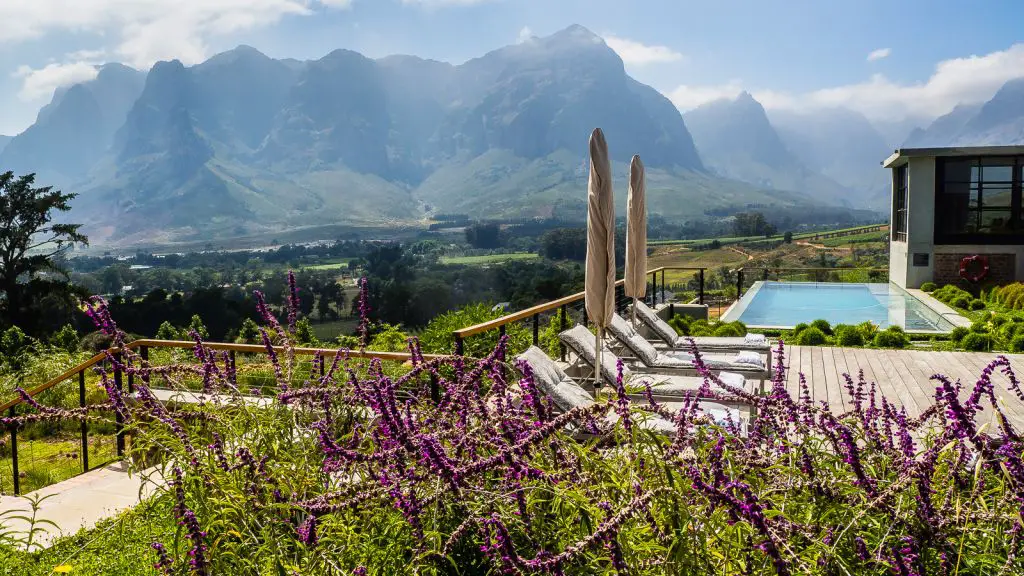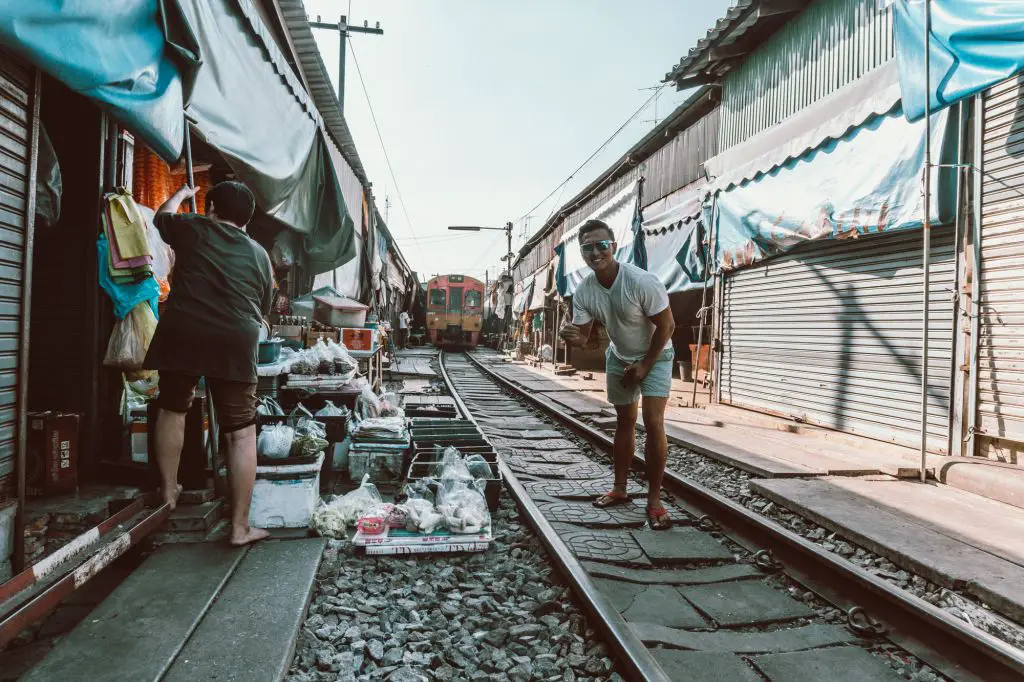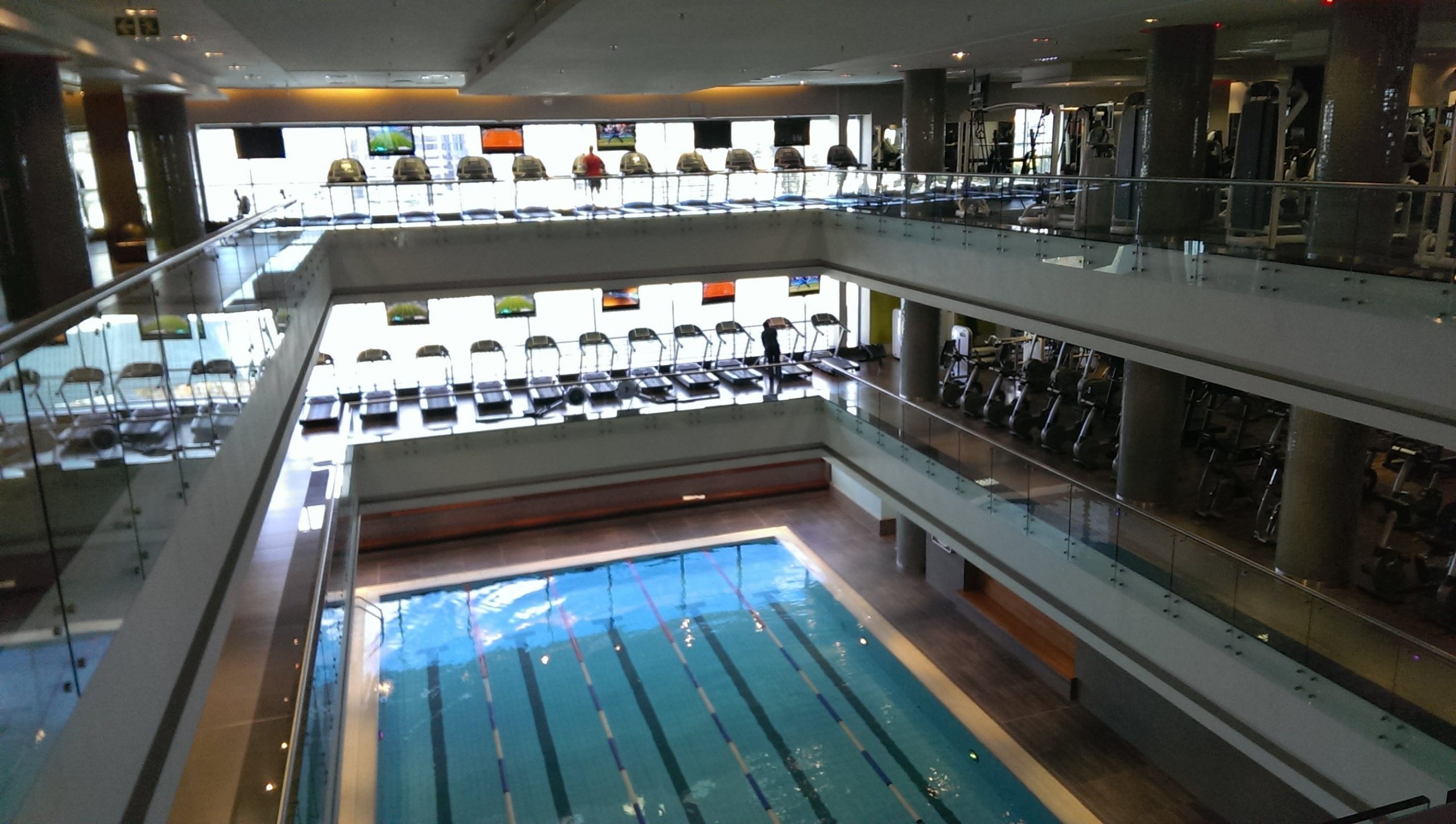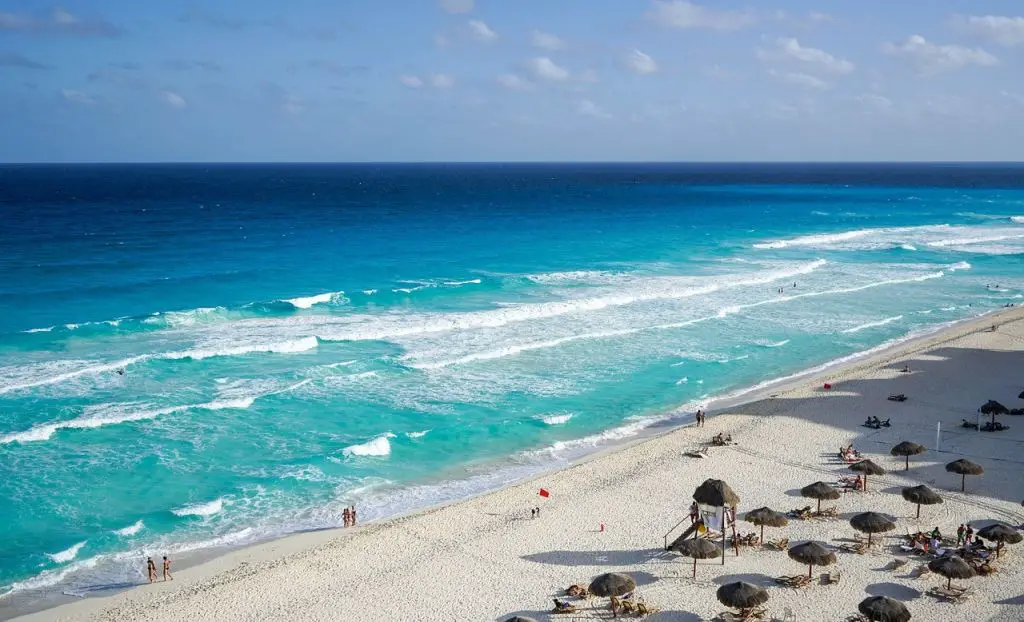South Africa is one of my favorite countries in the world. I spent many years living in Johannesburg and traveling through the rainbow nation with one of my fondest memories is the diversity in the languages. The languages of South Africa are just as significant to understanding the country as experiencing the beauty of Cape Town, the incredible views from Stellenbosch, or the iconic safaris the country has to offer.

I’ll be honest, I had no idea there were so many languages when I moved to South Africa or that there was so much diversity to begin with. I knew English was primarily spoken everywhere, Afrikaans, and Zulu. Turns out, there are 8 more languages that are part of South Africa!

What are the languages of South Africa?
South Africa is a country with a rich and diverse linguistic heritage, with a total of 11 official languages and a variety of indigenous languages spoken throughout the country. However, the question of how many languages are in South Africa is not a straightforward one, and the answer depends on how one defines and counts languages.

The 11 official languages of South Africa are Afrikaans, English, isiNdebele, isiXhosa, isiZulu, Sepedi, Sesotho, Setswana, siSwati, Tshivenda, and Xitsonga. These languages were recognized as official languages in the 1996 Constitution, which was adopted after the end of apartheid. The selection of these 11 languages was intended to reflect the country’s linguistic diversity and to promote national unity.
However, it is important to note that these 11 official languages are not equally spoken throughout the country. According to the 2011 census, the most widely spoken languages in South Africa are isiZulu, spoken by over 22% of the population, followed by isiXhosa at over 17%, and Afrikaans at over 13%. Other languages, such as Sepedi and Sesotho, are spoken by smaller percentages of the population.
English is the main language in South Africa
Even though there are 11 national languages in South Africa, make no mistake that the main language is in fact English. English is spoken by everyone whether they are white, black, Indian, or something in between. You need to have a unifying language in the country because there’s no way someone speaking Afrikaans will be able to communicate with someone speaking Zulu otherwise.
English is the primary language taught in schools with the exception of a few Afrikaans schools deep in Pretoria. If you plan on visiting or living in South Africa, knowing English is all you need to get around since everyone else will speak it.
One of the beautiful things in South Africa is their English accents. Because there are so any different languages, everyone’s English accent is different based on their first languages. This is something you’ll notice as you live here longer and even the South Africans acknowledge it.
Indigenous Languages of South Africa
In addition to the official languages, there are a variety of indigenous languages spoken throughout South Africa. Contrary to popular belief, the “native” people of South Africa are in fact not Black. The modern day Zulu and Xhosa tribes for example were not the original people that settled in South Africa. They actually migrated from East Africa (modern day Kenya/Tanzania) to South Africa many centuries ago.
The native people are in fact the San people. Not only do they look different than the Bantu people, but they have their own languages. These languages reflect the country’s linguistic diversity and include Khoi, San, and various Bantu languages. However, many of these languages are facing challenges such as language shift and language loss.
Language shift refers to the process by which speakers of one language shift to speaking another language. This is often a result of social, economic, and political pressures. In South Africa, many indigenous languages are under threat of language shift, as speakers shift to speaking one of the official languages, particularly English and Afrikaans.
Language loss refers to the process by which a language becomes extinct or dies out. This is often a result of language shift, but can also be caused by other factors such as war, disease, or displacement. In South Africa, many indigenous languages are at risk of language loss, particularly those spoken by small communities.
The number of languages spoken in South Africa is therefore difficult to determine, as it depends on how one defines and counts languages. However, it is estimated that there are around 300 different languages spoken in South Africa, with the 11 official languages and a variety of indigenous languages.
History of Language in South AFrica
The history of language in South Africa is closely tied to the country’s history of colonialism and apartheid. Under colonialism, the languages of the colonizers were imposed on the indigenous population and indigenous languages were suppressed.
During apartheid, the use of certain languages was restricted and language was used as a tool of oppression. However, language also played a role in resistance during this time, with many anti-apartheid activists using language as a means of communication and expression. During the Apartheid era (1948-1994) the government imposed the Afrikaans language on the black population as a medium of instruction in schools, which led to widespread resistance and protests. The most notable of these protests was the Soweto Uprising in 1976, where thousands of black students protested against the forced use of Afrikaans in schools.
Where is each language spoken?
In South Africa, the most widely spoken languages are:
- IsiZulu: Spoken by the largest linguistic group in South Africa, the Zulu people. It is widely spoken in KwaZulu-Natal province and also in other provinces such as Gauteng and Mpumalanga.
- IsiXhosa: Spoken by the Xhosa people, who are the second-largest linguistic group in South Africa. It is widely spoken in the Eastern Cape province.
- Afrikaans: Spoken mainly by the Afrikaner minority and other South Africans of different ethnicities. It is widely spoken in the Western Cape province, particularly in the rural areas.
- English: Spoken as a first language by a minority of South Africans, but it is widely used as a second language and is an official language of the country. It is widely spoken in urban areas, especially in the major cities such as Cape Town, Johannesburg, and Pretoria.
- Sepedi: Spoken mainly by the Northern Sotho people and other ethnic groups in the Limpopo province.
- Sesotho: Spoken mainly by the Southern Sotho people and other ethnic groups in the Free State province and Gauteng.
- Setswana: Spoken mainly by the Tswana people and other ethnic groups in the North West province and Gauteng.
- Xitsonga: Spoken mainly by the Tsonga people and other ethnic groups in the Limpopo province and Mpumalanga.

Language in South Africa Distribution by population
Below is a list of all the languages in South Africa and the percentage of the population that speak it as a first language.
What are the top 3 languages spoken in South Africa? That would be English, Afrikaans, and Zulu.
| Language | Subfamily | 1st language share | 1st language users | 2nd language users | All users |
| Afrikaans | Low Franconian | 13.5% | 6.9 million | 10.3 million | 17.2 million |
| English | West Germanic | 9.6% | 4.9 million | 11.0 million | 15.9 million |
| isiNdebele | Nguni | 2.1% | 1.1 million | 1.4 million | 2.5 million |
| isiXhosa | Nguni | 16% | 8.1 million | 11.0 million | 19.1 million |
| isiZulu | Nguni | 22.7% | 11.6 million | 15.7 million | 27.3 million |
| Sesotho | Sotho-Tswana | 7.6% | 3.8 million | 7.9 million | 11.8 million |
| Sesotho sa Leboa (Sepedi) | Sotho-Tswana | 9.1% | 4.6 million | 9.1 million | 13.8 million |
| Setswana | Sotho-Tswana | 8% | 4.1 million | 7.7 million | 11.8 million |
| siSwati | Nguni | 2.5% | 1.3 million | 2.4 million | 3.7 million |
| Tshivenda | Sotho-Makua-Venda | 2.4% | 1.2 million | 1.7 million | 2.9 million |
| Xitsonga | Tswa-Ronga | 4.5% | 2.3 million | 3.4-million | 5.7 million |
Afrikaans language in South Africa
The Afrikaans language is a West Germanic language that developed in South Africa from Dutch dialects brought to the region by Dutch colonizers in the 17th century. It developed as a distinct language from Dutch in the 18th and 19th centuries, largely due to the unique circumstances of the Dutch-speaking colonists in South Africa, who were isolated from the Dutch-speaking communities in Europe and came into contact with a variety of African languages.

The earliest form of Afrikaans was known as Cape Dutch, which was spoken by the Dutch colonizers who arrived in the Cape of Good Hope in 1652. This dialect was heavily influenced by the languages spoken by the indigenous Khoikhoi and San peoples, as well as by the Malay and French slaves brought to the colony.
Over time, the Dutch settlers in South Africa began to develop their own distinct dialects, which became increasingly distinct from the Dutch spoken in Europe. These dialects were known as “kitchen Dutch” or “taal” (language), and they were spoken by the working class, especially those in rural areas.
In the late 19th century, a movement began to standardize and promote Afrikaans as a separate language, distinct from Dutch. This movement was led by the Genootskap van Regte Afrikaners (Society of Real Afrikaners), which was founded in 1875. The society sought to promote the use of Afrikaans in literature, education, and government, and it played a key role in the development of the Afrikaans language as we know it today.
Afrikaans was officially recognized as a separate language in 1925, and it was made an official language of South Africa in 1925, alongside English and Dutch. However, it was not widely used in education and government until the National Party, which was made up mainly of Afrikaners, came to power in 1948. Under the National Party, Afrikaans was made the medium of instruction in many schools and was promoted in government and other official contexts.
This policy of promoting Afrikaans led to widespread protests and resistance, particularly among the black population and the English-speaking community. The most notable of these protests was the Soweto Uprising in 1976, where thousands of black students protested against the forced use of Afrikaans in schools.
After the end of apartheid in 1994, Afrikaans continued to be an official language in South Africa, but its use in government and education has declined. Today, Afrikaans is spoken by around 6 million people in South Africa, mainly by the white Afrikaner minority, but also by many other South Africans of different ethnicities. You’ll find Afrikaans spoken in places like Pretoria, Cape Town, and various towns along the Western Cape.
Afrikaans has also been influential in the development of other languages in South Africa, such as the Cape Coloured and Griqua dialects, as well as in Namibia, which was a former colony of South Africa.
English Language in South Africa
The English language has a long history in South Africa, dating back to the arrival of English-speaking settlers in the Cape in 1820. Despite being eventually forced out by Dutch settlers and their descendants, English had enough time to become firmly established in the Cape Colony and beyond.
In recent years, English has seen a rise in popularity in South Africa and has become the go-to language for official business and communications. While it is spoken by only about 10% of the population as a first language (The English South Africans), it is widely spoken in major urban areas such as Cape Town, Pretoria, and Johannesburg. The popularity of English can be attributed in part to the history of apartheid, which is closely tied to the Afrikaans language and its legacy as a language of oppression.

Despite being the fourth most common natively spoken language in South Africa, the growth in popularity of English as a means of mobility and opportunity, as well as the constitutional leveling of Afrikaans with the nation’s other official languages, away from its protected status, has raised important questions about the future of Afrikaans in comparison to English.
South African Slang phrases
As to be expected, the South Africa English accent is one of the most unique interesting accents I’ve come across. I find South African English accents very pleasant to listen to and it’s consistently rated as one of the sexiest English accents out there.
As with any English speaking country, there are a slang terms unique to South Africa. Here are some of my favorites:
- Bru: The South african way of saying Bro (brosef, brah, etc.)
- Boet (pronounced put with a B): The Afrikaaner way of saying Bru
- Howzit: People use it frequently here as a way of greeting someone, just like someone would use “how’s it going?”. Often times this phrase isn’t even used as a question but merely just a greeting.
- Lekker: Similar to the German word Lecker, this word is used by all South Africans to describe anything that is good. While Germans only use this word to describe food, South Africans will use lekker to describe anything from food to the weather to their relationships.
- Now now and Just now: Just now means 5 minutes to whenever I’m done with what I’m currently doing. Now now can be anytime between now and when I die. Right now actually means right at this instance.








